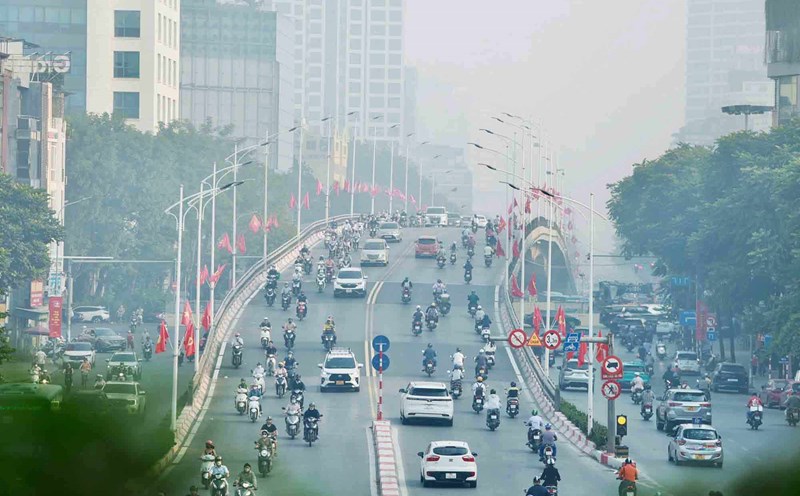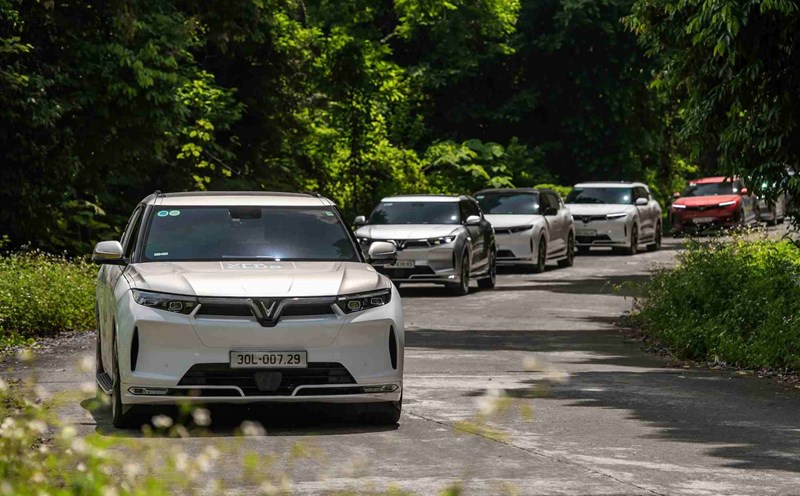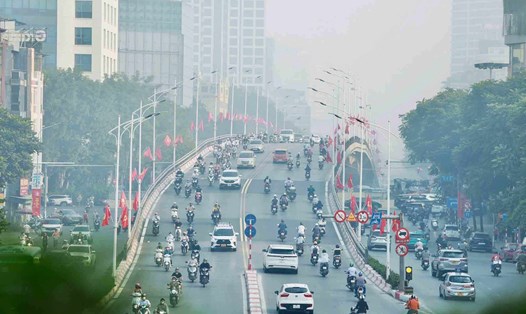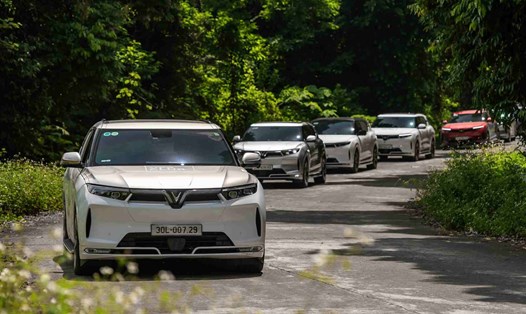Using electric vehicles greatly reduces emissions
In July 2022, the Prime Minister issued Decision 876/QD-TTg to approve the "Action Program on green energy transformation - reducing carbon and methane emissions in the transport sector".
Assessing in the report “Vietnam: Proposal for a national roadmap and action plan for the transition to electric vehicles”, the World Bank said that this action program is the first policy in Vietnam aimed at specifically reducing carbon emissions in the transport sector.
In the transport sector, the combustion of gasoline and diesel by road vehicles is by far the largest contributor to greenhouse gas (GHG) emissions, accounting for about 85%. This is followed by emissions from inland waterway transport and maritime transport, accounting for about 9% due to the combustion of FO and diesel; and air transport accounts for about 4.5% due to the combustion of jet fuel.
According to the World Bank study “Clean Air for Ha Noi: What Will It Take?” in 2022, emissions from transportation activities contribute about 25% of PM2.5 fine dust in Hanoi.
By achieving the SPS electric vehicle adoption scenario (a policy scenario that simulates pathways in which all targets and measures for electric vehicle adoption stated in Decision 876/QD-TTg are achieved), by 2030, Vietnam can avoid 302 tons of sulfur oxide emissions, 1,857 tons of nitrogen oxides, and 181 tons of PM2.5 fine dust.
By 2050, as the transition to electric vehicles extends to cars, trucks, and long-haul buses, this positive impact would increase by a factor of 162 for sulfur oxides (a reduction of about 48,842 tons), by a factor of 66 for nitrogen oxides (a reduction of 122,079 tons), and by a factor of 48 for PM10 (a reduction of 8,607 tons).
This level of air pollution reduction will help Vietnam save a total of about 30 million USD in environmental damage costs by 2030, and this figure will increase to 6.4 billion USD by 2050.
Dr. Hoang Duong Tung - Chairman of the Vietnam Clean Air Network - said that personal vehicles such as cars and motorbikes are the main source of air pollution, especially in big cities. More worryingly, the number of vehicles using internal combustion engines is constantly increasing and "aging", making it difficult for Vietnam to achieve its goal of achieving "Net Zero" emissions by 2050.
“If we do not switch to green transportation, environmental pollution will continue to harm health, the economy, and the environment,” Dr. Hoang Duong Tung warned.
Need to expand charging stations across the country
Speaking to Lao Dong reporter, Associate Professor, Dr. Dinh Trong Thinh - economic expert said that Vietnam has a strong and comprehensive transformation roadmap, with the potential to become the leader in Southeast Asia in green transportation if the plan is implemented correctly. However, to accelerate the transition to electric vehicles, more support policies from the State for businesses and people are still needed.
For example, it is necessary to develop fast charging infrastructure and a nationwide network of charging stations. It is necessary to research and have more preferential financial policies such as: Exemption/reduction of land rent for building charging stations; support for developing electricity infrastructure to serve charging stations; preferential loan policies with interest rates for people buying electric vehicles or switching from gasoline vehicles...
According to a World Bank report, if the charging network is fully developed, electric vehicles can become the first choice for first-time car buyers.However, the necessary charging network must be established to support the goal of using electric vehicles.
World Bank experts said that Vietnam should focus on creating a policy environment that maximizes the motivation of the private sector and the business prospects related to investing in the charging network.
This can be done by introducing regulations on the use of electric vehicles with a specific roadmap, setting clear technical standards for charging infrastructure, providing financial and non-financial incentives to encourage the private sector to invest in charging activities, and piloting public-private partnership business models to develop charging station networks through pilot projects implemented by the Government.











